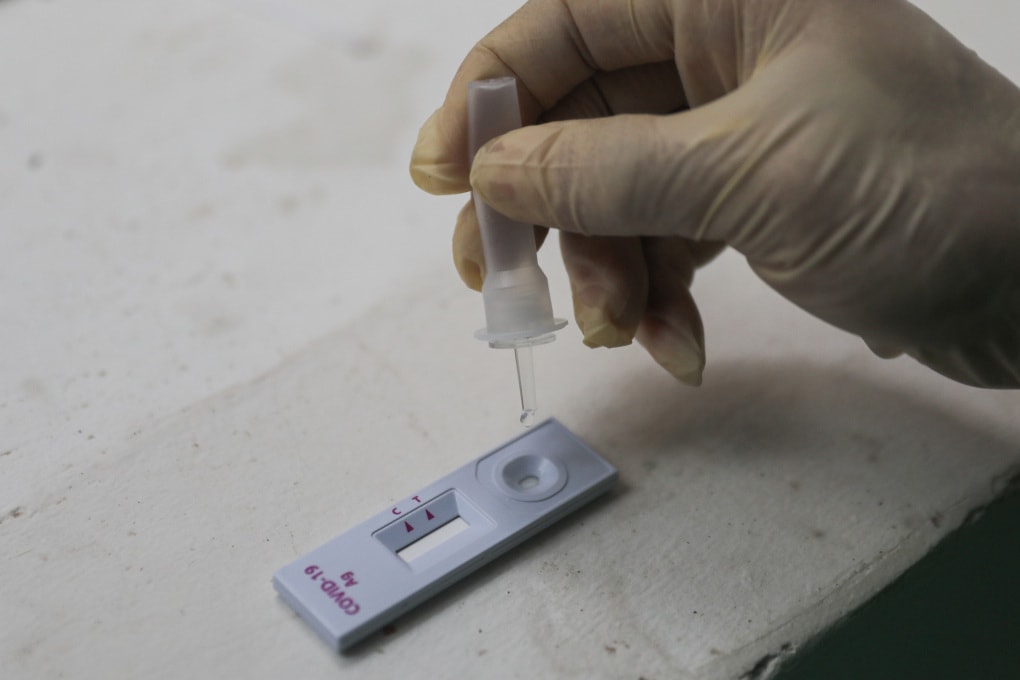Predictions for the Covid-19 pandemic in 2022
Experts predict 2022 could be the year Covid-19 “no longer is a pandemic,” largely due to rising global vaccination rates and widespread availability of antiviral drugs.
Instead, nCoV becomes a long-lasting virus, gradually decreasing in severity and becoming part of the new normal.
Many respiratory pathogens have followed a similar pattern throughout medical history, from the Spanish flu of 1918 to the swine flu of 2009. Covid-19 could still be dangerous in the post-pandemic era. In fact, seasonal flu killed 62,000 Americans between October 2019 and April 2020, according to the Centers for Disease Control and Prevention (CDC). But experts say the hope of a return to normalcy is within sight.
Covid-19 becomes a seasonal pathogen
Once it becomes a long-term disease, Covid-19 will not affect the lives of the community too much. Billionaire Bill Gates once commented: "It is no longer the deciding factor whether we should work in the office, watch football in the stadium or go to the cinema."
These pathogens, called “endemic,” are always circulating around the world and cause mild symptoms because many people have immunity from vaccination or past infection. People may have a cough and a runny nose, but a vaccine is often enough to prevent hospitalization or death.
Like other respiratory viruses, Covid-19 will peak at certain times of the year, most likely in the fall and winter months. This means that Covid-19 and seasonal flu will overlap in the future.
 |
| A group of friends meet at a restaurant in Auckland, New Zealand, December 2021. Photo: NY Times |
F0s only need to wear masks and quarantine at home.
If the virus becomes endemic, people will only need to wear masks in public and stay home while they are sick, according to Shaun Truelove, an infectious disease and epidemiologist at the Johns Hopkins Bloomberg School of Public Health. Experts recommend maintaining other disease prevention methods such as hand washing and limiting contact in high-risk areas.
"We don't necessarily need to impose new regulations (to prevent Covid-19), just continue the measures that have been proven effective," said Professor Timothy Brewer, UCLA Fielding School of Public Health.
Dr. Truelove hopes people will be more self-aware and self-isolate at home if they are sick. "You will work from home if you have symptoms, take a day or two off sick if you feel unwell," he said.
In fact, many countries around the world are considering shortening the quarantine period for infected cases or those in contact with F0. On December 29, Spain announced that it would shorten the quarantine period from 15 days to 10 days. Italy also removed the quarantine regulation for those in close contact with people infected with nCoV. F1s do not need to be quarantined if they have received two doses of vaccine or have had Covid-19 within the last 120 days. They only need to wear KN95 or N95 masks.
Effective treatment of Covid-19 with medicine
By the end of 2021, most countries will adopt a strategy of living with Covid-19, abandoning lockdowns and social distancing measures to create momentum for economic recovery. According to experts, 2022 will mark new advances in Covid-19 treatment, replacing the strong restrictions of the past two years of the pandemic.
The US Food and Drug Administration (FDA) has approved two anti-Covid-19 pills.Merck's molnupiravirandPaxlovid by Pfizerare effective against the mutant strain. The decision came after the European Medicines Agency gave the green light to Paxlovid.
Since the pandemic began, scientists have placed high hopes on convenient and easy treatments. Covid-19 drugs do not stop the spread or flatten the epidemic curve, but they do help cut the mortality rate among patients.
Molnupiravir and Paxlovid are just the beginning. With Omicron running rampant and other variants continuing to emerge, scientists say the world needs a robust arsenal of drugs to fight new foes, especially if the mutations are capable of reducing the effectiveness of vaccines.
Many experts are working on a next-generation drug that precisely targets weaknesses in the molecular structure of the coronavirus. Others are examining whether it should be used alone or in combination with existing Covid-19 pills.
Home testing plays an important role
Demand for rapid tests (also known as antigen tests) has skyrocketed as the Delta variant has become dominant. With the emergence of Omicron, more and more people are getting used to taking their own nasal swabs at home. Normally, standard PCR tests are performed at hospitals and medical facilities, and results take several days to come back. According to experts, during the waiting period, the patient's condition can change.
"Rapid antigen testing answers the question 'Do I have COVID-19?' That's something you need to know before you decide to meet someone," said Joseph Allen, associate professor at Harvard TH Chan School of Public Health.
Officials in the US and many other countries are trying to expand the use of antigen testing kits, saying this is the right strategy. According to Professor Rachael Piltch-Loeb of Harvard TH Chan University, health agencies need to help the community get used to self-testing at home.
 |
| Free kits were distributed to shippers at a location on No Trang Long Street, Binh Thanh District, on September 29. Photo: Quynh Tran |
Routine Covid-19 vaccination
Some experts believe that in 2022, people around the world may need more than three doses of Covid-19 vaccine, even annual vaccinations like the flu. If new strains of nCoV continue to emerge, scientists will adjust the annual booster vaccine to suit actual needs. Experts are also researching a universal vaccine that prevents all nCoV variants.
In the past, medical and public health experts have repeatedly adjusted vaccination strategies to meet changing circumstances. They have recommended booster doses of measles, mumps, and rubella vaccines after a few outbreaks.
Recently,Israel injects 4th dosefor a test group of health care workers since December 27. Kent Sepkowitz, a doctor at Memorial Sloan Kettering Cancer Center in New York, also supports the above approach. He believes that full vaccination and booster doses are the best way to push back the pandemic.
Getting vaccinated every year can be challenging. Convincing people, especially vaccine skeptics, will be difficult. As Covid-19 becomes a seasonal disease that no longer causes severe symptoms, some people may be complacent and skip vaccination. During the 2019 flu pandemic, which preceded Covid-19, only 48% of American adults got vaccinated.
According to some experts, in 2020, Covid-19 surprised and confused the community, but also marked a remarkable development of science and medicine. In 2021, the pandemic pushed the world to the brink of despair, but also recorded an unprecedented vaccination campaign. Many people expect 2022 to be the year that humanity learns to live with the pathogen, Covid-19 gradually becomes part of the "new normal".
“We don’t go in circles. Pandemics end,” said Syra Madad, senior director of the NYC Health Plus hospital system.
